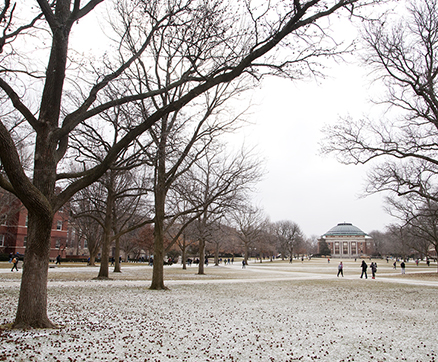Access & Affordability
In Spring 2014, the Campus Conversation Steering Committee convened a Working Group on Access, Affordability, and Inclusion, which provided a preliminary report in May 2014.
In response to their recommendations, the Campus Conversation Steering Committee strengthened the working relationship between C-CUE initiatives and the Committee on Race and Ethnicity (CORE) in order to support CORE’s ongoing efforts to promote campus-wide learning around diversity and inclusion.
In Fall 2014, the Steering Committee invited CORE to nominate a standing Advisory Member to the new Grand Challenge Learning Leadership Committee. As a result of that partnership, five Spring 2016 Grand Challenge Experience courses now qualify for general education credit in U.S. Minority Cultures. (In addition, one Grand Challenge Experience course qualifies for general education credit in Non-Western Cultures, and several explore economic and cultural differences across lines of gender, race, ethnicity, sexuality, and disability). Some of these courses derive from the Grand Challenge Learning pilot’s pathway in Inequality & Cultural Understanding, which the working group’s report explicitly endorsed.
The call to collect and study data to gauge campus success in recruiting and retaining underrepresented minorities, low-income students, and first-generation students, has so far yielded some positive results. For example, the number of African American freshmen in Fall 2015 is up by 33% since last year—representing the largest number of such enrollments since the federal definitions of race/ethnicity changed in 2010. The number of Hispanic students is up 13% from last year.
Although affordable access remains a high-priority goal requiring continued vigilance and effort, the last year has also seen some progress. For example, the campus’s President’s Award Program grew from $16 to $19million in 2015-16 in addition to which the Illinois Promise program awarded almost $7million dollars in financial aid to low-income students, and the new Chancellor’s Access Grant allocated an additional $1million.


